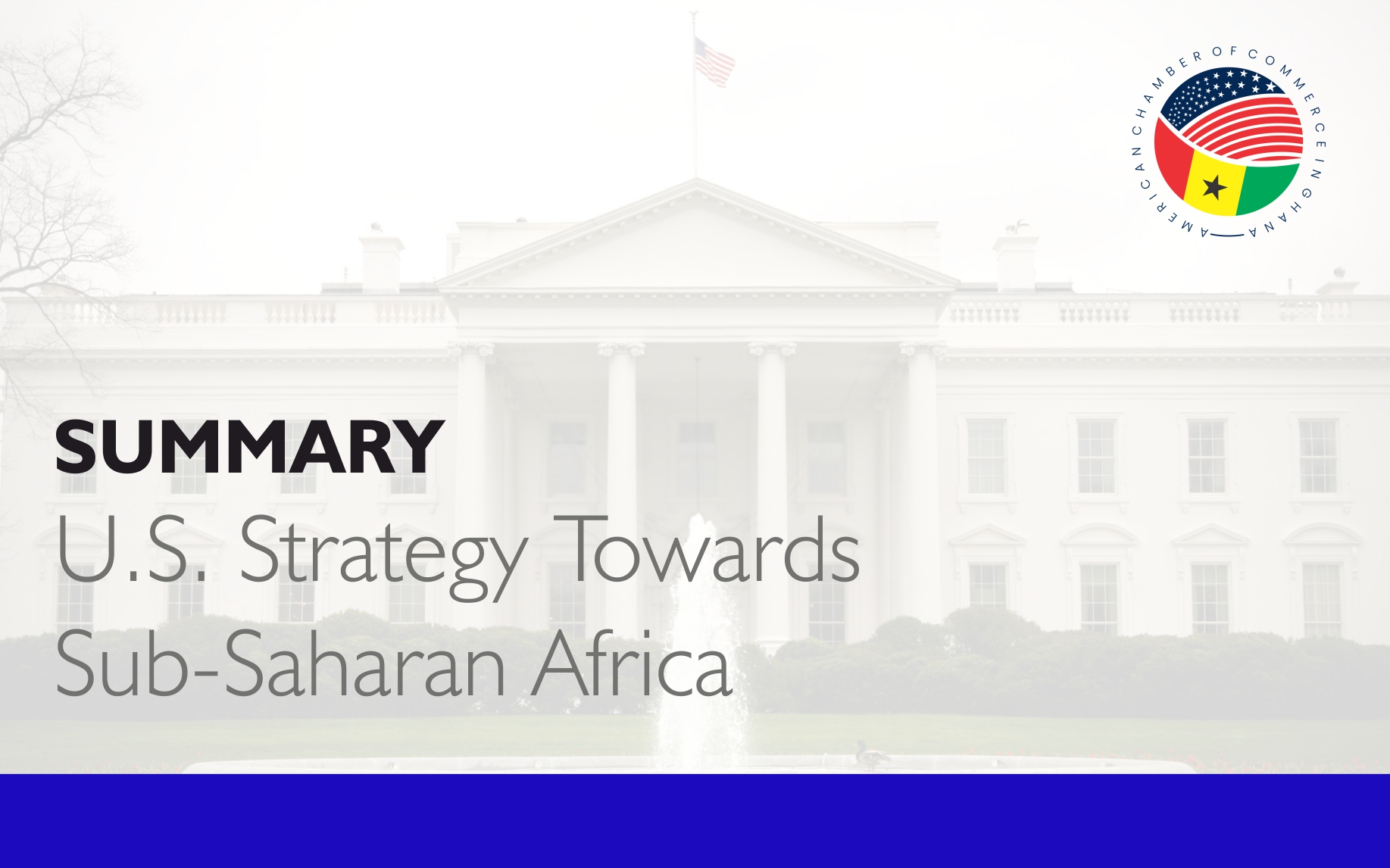Introduction
Sub-Saharan Africa has one of the world’s fastest-growing populations, the largest free trade areas, and diverse ecosystems. This strategy reframes the region’s importance to US national security interests. It calls for developing a deeper bench of partners and a more flexible regional architecture. US policy priorities include promoting democracy and governance, peace and security, trade and investment, and development.
Strategic Objectives
In Sub-Saharan Africa, the United States will pursue four goals:
- Foster Openness and Open Societies
- Deliver Democratic and Security Dividends
- Advance Pandemic Recovery and Economic Opportunity
- Support Conservation, Climate Adaption, and a Just Energy Transition
Foster Openness and Open Societies
The US is vested in ensuring that the region remains open and accessible to all. Open societies are more likely to collaborate with the US, attract more US commerce and investment, and implement policies that better the lives of their residents.
- The United States will collaborate with African governments, civil society, and the public to strengthen openness and accountability, mainly through investigative journalism, countering digital authoritarianism, and enshrining laws, reforms, and practices that promote shared democratic principles.
- The United States will increase its focus on rule of law, justice, and dignity to deepen resilience and undercut negative influences
- The United States will support African countries in leveraging their natural resources more transparently, particularly energy and essential minerals, for sustainable development while also assisting to strengthen diversified, open, and predictable supply chains.
Deliver Democratic and Security Dividends
The region’s willingness and ability to revitalize its democracies and foresee, avoid, and address emergent and long-running conflicts can lead to better outcomes for Africans and Americans.
- The United States will seek to stem the recent tide of authoritarianism & military takeovers by working with allies and partners in the region.
- The United States will support African democracies by backing civil society, empowering marginalized groups, and centering the voices of women and youth in reform efforts.
- The United States will focus its diplomatic efforts, leverage its development programs, and use its defense tools to strengthen and enable partners to respond to the drivers of conflict across the region.
- The United States will prioritize counterterrorism (CT) resources to reduce the threat from terrorist groups to the U.S. Homeland, persons, and diplomatic and military facilities, directing unilateral capability only where lawful and where the threat is most acute.
Advance Pandemic Recovery and Economic Opportunity
It is critical to address two of the region’s most important issues: the COVID-19 pandemic and its economic and social ramifications. The United States is dedicated to collaborating with African governments and international partners to help African economies become more stable and inclusive.
- The United States will prioritize policies and programs, as well as strengthen existing partnerships, to end the acute phase of the COVID-19 pandemic and enhance health security
- The United States will strengthen global supply chains to increase preparedness for the next health threat; address challenges in procuring and delivering vaccines, diagnostics, and therapeutics; support manufacturing initiatives for vaccines and other medical countermeasures.
- The United States will work with African countries to promote a stronger growth trajectory and debt sustainability, including by leveraging multilateral institutions, global partners, and international initiatives, to support the region’s economic recovery.
- The United States will assist in rebuilding human capital and food systems that have been severely undermined due to the pandemic and the impact of Russia’s assault on Ukraine.
Support Conservation, Climate Adaptation, and a Just Energy Transition
Africa’s efforts to conserve and restore the continent’s ecosystems and rich natural resources— while also realizing energy access and energy security goals, diversifying its energy mix, and building sustainable supply chains—are central to tackling the global climate crisis.
- The United States will partner with African governments, civil society, and local communities to conserve, manage, and restore the continent’s rich natural ecosystems, which can help reduce global carbon emissions and dampen climate change impacts.
- The United States will assist African countries in adapting to and building resilience to climate change. The United States will continue collaborating with African states vulnerable to climate
change. - The United States will encourage governments to undertake critical reforms to enable transparent and world-class investment in the region’s essential minerals under the President’s Emergency Plan for Adaptation and Resilience (PREPARE).
- The United States will continue pursuing public-private partnerships to sustainably develop and secure the critical minerals that will supply clean energy technologies needed to facilitate the global energy transition.
The Approach
This new strategy will spur us to refocus, renew, and strengthen existing programs, as well as recommend and develop new initiatives. Here is how it is going to be done.
- The United States will continue to work with Africans to address shared global concerns and thrive in a more connected, urban, and youthful area.
- The US will work with African allies to ease legal trade and travel.
- Across Sub-Saharan Africa, we will create a digital ecosystem based on open, dependable, interoperable, and secure internet and information and communication technology.
- The US will assist African cities in planning for future expansion in vital sectors such as energy access, climate change adaptation, transportation, and water and waste management.
Conclusion
US President Joe Biden: “We recognize that we have vital interests in common, and our path toward progress rests on a commitment to working together. “Biden noted that “none of this is going to be easy” but affirmed, “there is no doubt that our nations – we’re up to this task.”

